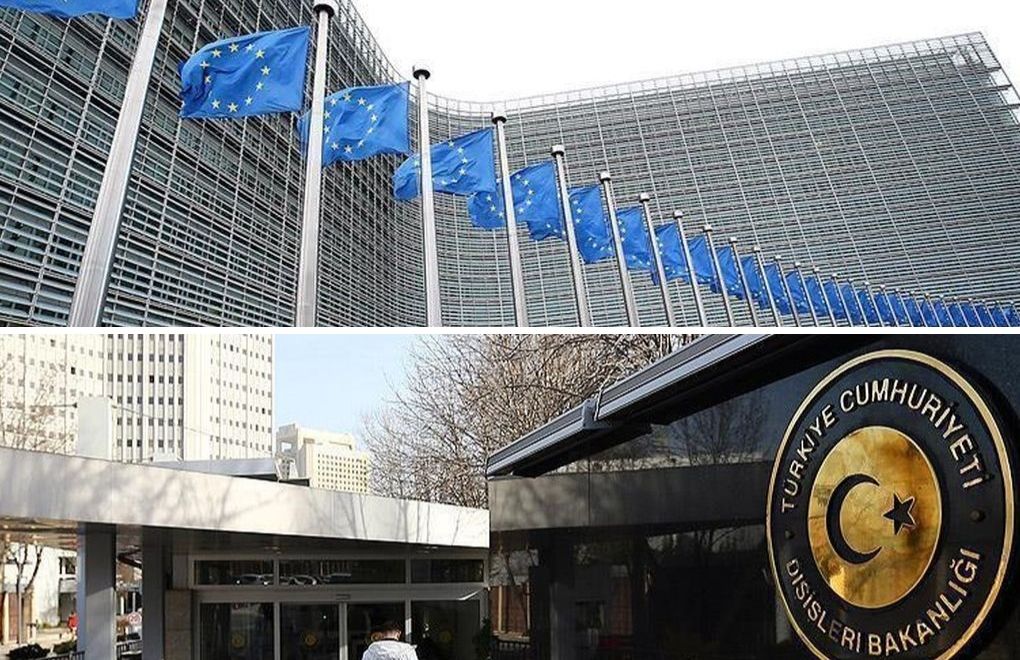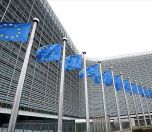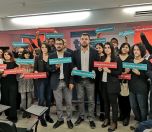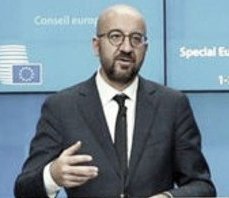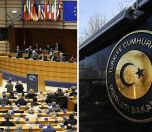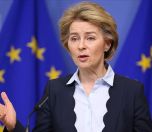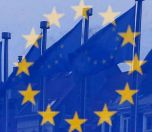Click to read the article in Turkish (1) (2)
The European Commission has released its progress reports within the framework of European Union (EU) enlargement policy.
The "Turkey 2020 Report" of the Commission has indicated that there has been a continued backsliding of the respect for democratic standards, the rule of law, and fundamental freedoms, rather than making any progress in the accession process. The report has noted that Turkey's chances of accession have gradually become slimmer.
In a written statement released on its website, Turkey's Ministry of Foreign Affairs has condemned the report and said that the report is "away from being constructive and has double standards."
'It has been worse in the last 2 years'
In the introduction to the report, the European Commission has indicated that "despite the lifting of the state of emergency in July 2018, the adverse impacts of the two-year long emergency ruling continued to significantly impact on democracy and fundamental rights."
The report of the Commission has added that with the adoption of the new Presidential system in 2018 and in the ensuing "absence of an effective checks and balances mechanism, the democratic accountability of the executive branch remains limited to elections."
"Under these conditions, the serious backsliding of the respect for democratic standards, the rule of law, and fundamental freedoms continued," the report has added. Referring to the polarization in the country, the report of the Commission has stressed that "political polarisation continued to prevent constructive parliamentary dialogue."
"Parliamentary oversight of the executive remained weak. Under the presidential system, many regulatory authorities and the Central Bank were directly linked to the Presidency, undermining their independence.
"The opposition candidate won the re-run of the metropolitan mayoral elections in Istanbul on 23 June 2019. While the elections were professionally organised, they were characterised by limited plurality for democratic media and conditions that were objectively not fair to all political parties and candidates in all respects," the report has commented further.
Other highlights from the report are as follows:
Kurdish issue and counter-terrorism
- The situation in the south-east continued to be very worrying, despite an improved security environment. The replacement of 47 democratically elected HDP municipal mayors by centrally appointed trustees in the south-east put the results of the democratic process of the 31 March 2019 local elections into question. Arrests and dismissals of elected mayors and party representatives continued and seriously damaged local democracy.
- The Government continued security operations against a background of the recurrent violent acts by the Kurdistan Workers' Party (PKK), which remains on the EU list of persons, groups and entities involved in acts of terrorism. While the government has a legitimate right to fight terrorism, it is also responsible for ensuring this is done in accordance with the rule of law, human rights and fundamental freedoms. Anti-terror measures need to be proportionate.
- Despite some reconstruction, only few internally displaced persons have received compensation. There were no visible developments on the resumption of a credible political process to achieve a peaceful and sustainable solution.
Civil society
- Civil society came under continuous pressure and their space to operate freely has continued to diminish. The Gezi trial and the continued pre-trial detention of Osman Kavala, despite the existence of a ruling of the European Court of Human Rights calling on his release, had a deterrent effect.
- Administrative difficulties for national and international non-governmental organisations (NGOs) continued to hamper civil society activities. Civil society organisations remained excluded from genuine legislative consultation processes.
Judiciary
- Turkey's judicial system is at an early stage of preparation and serious backsliding continued during the reporting period. Concerns remained, in particular over the systemic lack of independence of the judiciary.
- The President announced the Judicial Reform Strategy for 2019- 2023 in May 2019. However, it falls short of addressing key shortcomings regarding the independence of the judiciary.
- There are concerns that dismissals in the absence of respect for due procedures caused self-censorship and intimidation within the judiciary.
- No changes were made to the institution of criminal judges of peace so that concerns regarding their jurisdiction and practice remained.
Corruption
- Regarding the fight against corruption, Turkey remained at an early stage and made no progress in the reporting period. The country continued to lack preventive anti-corruption bodies.
- The flaws of the legal framework and institutional architecture allowed undue political influence in the investigation and prosecution phases of corruption cases.
- Accountability and transparency of public institutions need to be improved. The absence of an anti-corruption strategy and action plan indicated the lack of political will to fight decisively against corruption. Overall, corruption is widespread and remains an issue of concern.
Freedoms
- Serious backsliding continued on freedom of expression. The disproportionate implementation of the restrictive measures continued to negatively affect the freedom of expression and dissemination of opposition voices. Criminal cases and convictions of journalists, human rights defenders, lawyers, writers and social media continued.
- The ban on Wikipedia was lifted in December 2019, however, the blocking and erasing of online content without a court order on an inappropriately wide range of grounds continued.
- There was further backsliding in the area of freedom of assembly and association in light of recurrent bans, disproportionate interventions in peaceful demonstrations, investigations, administrative fines and prosecutions against demonstrators on charges of 'terrorism-related activities'.
Economic criteria
- Regarding the economic criteria, the Turkish economy is well advanced, but made no progress over the reporting period and serious concerns persist over its functioning.
Turkey has slammed the report
As reported by the state-run Anadolu Agency (AA), Turkey has criticized the European Commission's 2020 Enlargement Package prepared for all candidate and potential candidate countries.
"The 2020 report on Turkey reflects the EU's biased approach which is also away from being constructive and has double standards," the Foreign Ministry has said in a statement released on its website.
"In this report too, the EU criticizes Turkey with baseless arguments while it does not mention its responsibilities and commitments it has failed to fulfill. In particular, its biased, unfair, and disproportionate criticism of Turkey's foreign, security, and economic policies as well as our governmental system, elections, fundamental rights, some judicial and administrative decisions, and the legitimate measures taken against terrorism shows how the EU is away from being objective," the ministry has said.
Turkey is a candidate country which adopts the negotiation process despite being blocked "by a narrow-minded attitude displayed by some EU parties," the statement of the Ministry has noted, stressing that the country is committed to the EU membership process.
"It was expected the commission to strongly stress this and not make a discrimination in the candidate countries in its enlargement strategy and implementation as 'Western Balkans' and Turkey," it has said.
'It is entirely based on Greek-Cypriot claims'
The statement of the Foreign Ministry has also indicated the sections of the report on the Eastern Mediterranean, Aegean and Cyprus issues are entirely based on Greek-Greek Cypriot claims:
"This situation tarnishes the commission's impartiality. We reject this biased and unlawful point of view that contributes neither to the solution of the Cyprus problem nor to the stability of the Aegean and Eastern Mediterranean.
"Furthermore, Greek-Greek Cypriot duo's taking hostage of EU-Turkey relations to that extent estranges the EU from strategic mind and vision while harming the EU's interests. With no claim on the right of anyone, Turkey will continue to protect its rights and the rights of Turkish Cypriots."
'Turkey acts in line with fundamental rights'
The statement has underlined that the "report did not mark the threats Turkey faces by the terror groups", saying, "The language used in this section does not serve any other purpose than to please radicals in Europe who are against the EU and Turkey. Turkey acts in line with universal values, fundamental rights, security, democracy and the rule of law."
The statement has also emphasized the following points:
"Our country is highly integrated with the EU market in terms of both trade and investments, and is directly affected by the economic problems in the EU and fluctuations in global markets.
"But Turkey is taking the necessary measures, coping to get through this difficult situation with the minimum damage, which the EU member countries are deeply affected. On the other hand, it is noteworthy that the EU stated that there was a decline in the areas related to the Customs Union, while it did not start the negotiations for its update.
"Level of harmonization mentioned in the report, despite the political obstacles Turkey faces during the accession process, is a clear expression of the will to maintain harmonization with the EU acquis.
"Our sincere desire is that the EU approaches Turkey, a candidate country, in larger and common interests of our continent, not in terms of selfish and parochial interests of certain parties, as well as developing and advancing Turkey-EU relationship in all dimensions in a membership perspective." (EKN/SD)




